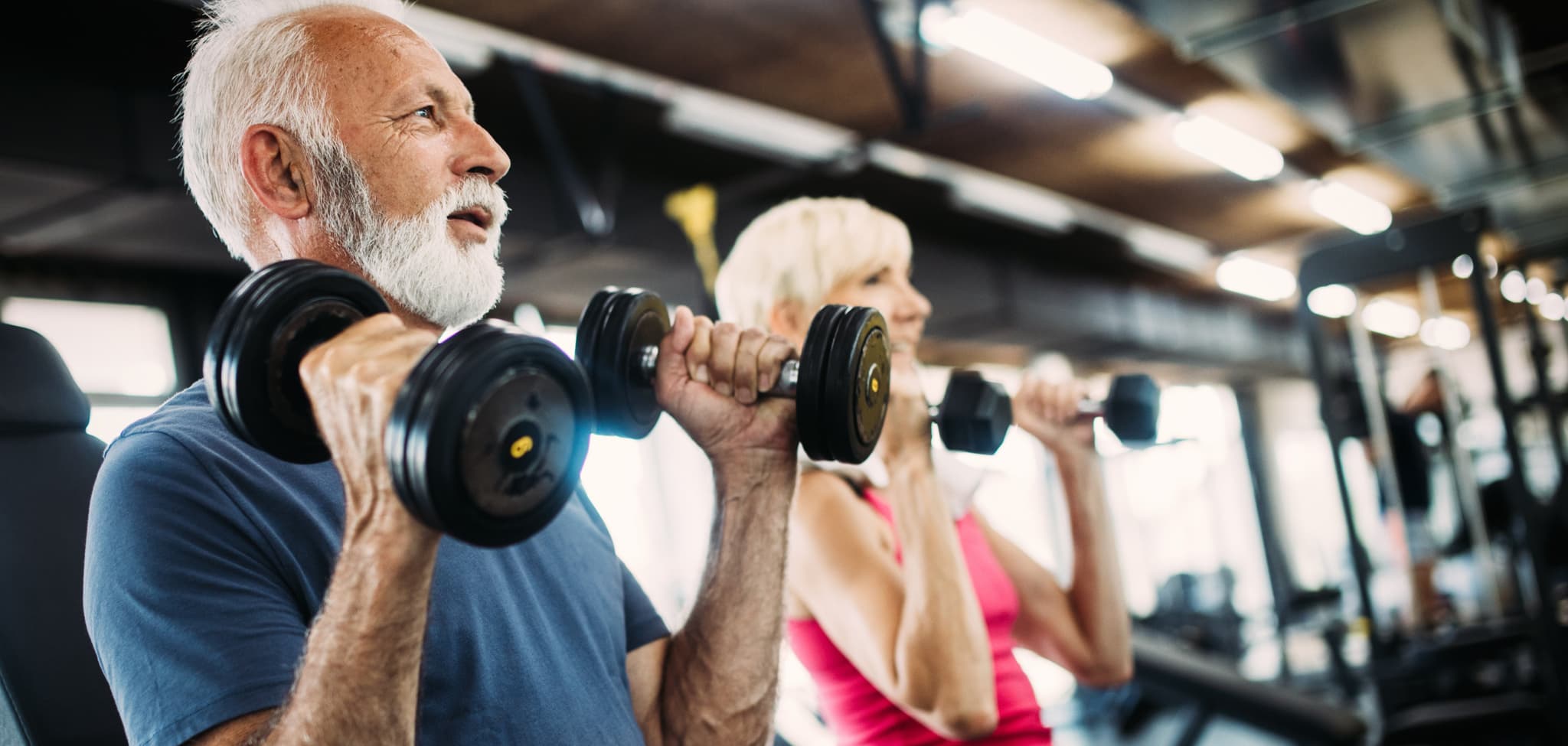
2021-06-30T10:17:21
The Jackson Brothers: A Legacy of Healing in Utah County
- Orthopedics
- Sports Fitness and Physical Therapy
April 26, 2019 | Sports Fitness and Physical Therapy
Specialties:Family Medicine • Sports Fitness and Physical Therapy

As people age, they often become less physically active. In fact, studies show that at the age of 75, about one in three men and one in two women don’t exercise. The number of positive benefits from exercising far outweighs the negative, which means it’s essential to exercise and strengthen your body consistently, especially as you get older. We’ve compiled a list of ways you can stay active as you age.
Sometimes knowing the health benefits of exercise is enough to motivate people to start an exercise routine. Some of the benefits of exercising include a reduced risk of cardiovascular disease, hypertension, type 2 diabetes, osteoporosis, obesity, colon cancer and breast cancer. Physical activity also increases muscle strength and flexibility, which decreases the risk of falls and injuries.
Without setting goals, it can be difficult to hold yourself accountable. Think about what you want to achieve and use that to set realistic, specific and measurable fitness goals. It’s also important for these goals to be attainable so that you don’t get too discouraged when trying to accomplish them. Setting goals that are both measurable and specific, instead of general and imprecise, will help you know if you’ve accomplished them. When writing specific goals, include types of exercise, frequency, intensity and time. Don’t forget to check up on your goals and set new ones when you accomplish old ones.
If you’ve ever been to the mall during the day, you may have noticed groups of seniors walking around. Many communities have senior groups that walk in malls, as malls are open to the public and offer protection from the weather. Other community resources available to older adults are local senior centers and recreation centers. These facilities often offer fitness classes for older adults to participate in. Every community has different resources, so make sure you do your homework and research ways you can stay active.
Sometimes a new hobby or sport can help motivate people to exercise. Exercising can be as simple as doing something you love to do, such as walking, hiking, dancing, cycling, swimming, yoga, tai chi and pilates. The most popular activities for adults 65 years and older include walking, gardening and yard work. Weight lifting is also a beneficial activity for those who are aging. Research says that when adults get older, they need to spend more time lifting weights to maintain healthy muscles. It also says that starting at the age of 30, people lose a maximum of 3 to 5% of muscle mass every ten years. Even men lose their muscle mass over time; they could lose a total of 30% of their muscle mass throughout their life. You can achieve your fitness goals by participating in any of these activities, while at the same time gaining a new hobby.
Sitting down and remaining sedentary for a long time can be unhealthy. Sedentary activities include watching TV, reading books or driving for too long, which can prevent physical activity. Out of all the age groups, those over 65 are the most inactive, but the good news is that it’s never too late to start exercising. People can always benefit from exercise, even if they have been sedentary for years. If you have the opportunity, invite family members and friends to exercise with you. According to the Center for Disease Control, support from family and friends is proven to lead to consistent physical activity.
Remember, experts recommend that adults, even aging adults, get at least 150 minutes of physical activity during a week. Older adults should also talk with their doctor about their health goals before trying any new and overly strenuous physical activities.

WRITTEN BY:
The Live Better Team

2021-06-30T10:17:21

2017-08-07T11:20:04

2017-07-17T09:52:17

2017-06-21T10:41:03
This information is not intended to replace the advice of a medical professional. You should always consult your doctor before making decisions about your health.